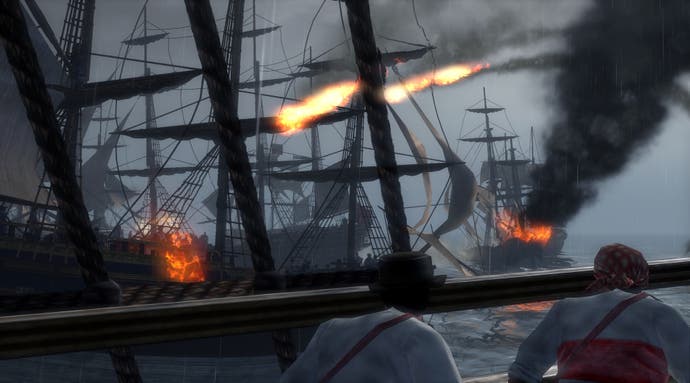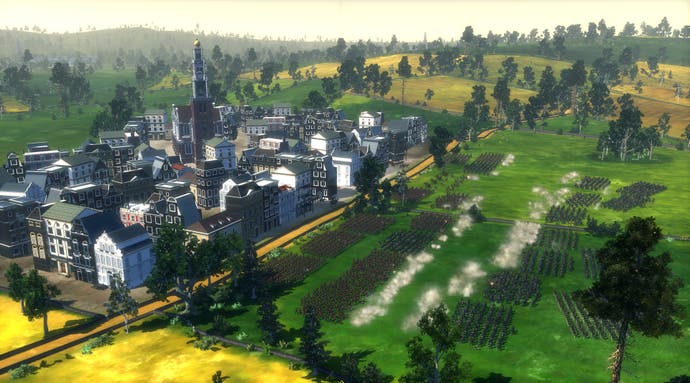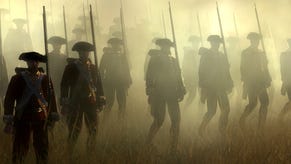Empire: Total War
When life gives you cannons, make Cannonade.
The biggest anachronism? At the moments when the cannons were going off and the thin red line was being turned into thick red paste, I found myself humming the 1812 Overture. The game's about the 1700s. Totally anachronistic. Unforgivable. Unforgivably brilliant, that is.
That happens a lot. The Total War games have always bridged the world of hardcore wargames and the PC mass-market. It was appropriate that Rome: Total War was used as part of the BBC's Time Commanders TV series - Total War is simultaneously dignified history and entry-level pop. As such, Empire has me excited about a period of military history I wouldn't normally give a damn about, reaching for the meagre reference points I have to process it: from Sharpe to War and Peace, whether it's in the right period or not (and it's usually not). Empire not only captures the glamour of shiny buttons and musket-shot - it convinces me that there is glamour in shiny buttons and musket-shot. It's quite the game.
It's also quite a lot of game, full of so many individual bits and pieces that a little top-level over-view will probably profit us. Empire is the fourth period (and fifth game) to be explored by Creative Assembly in a Total War format, after Japanese Shogunate wars, Medieval (twice) and Rome. The idea is a sort of streamlined credibility; while it tweaks a lot of the historical details for the purposes of a real-time strategy game, it's also a lot more like a wargame than almost anything in the mainstream.
So battles are fought between armies of up to twenty units, each one consisting of over a hundred men. You don't build on the field of battle, you just have an army which has to fight it out. As such, considerations like terrain and positioning come significantly into play. Morale also comes into it, with a strike which makes the opposition lose its nerve (a flank charge, for example) being enough to cause troops to turn tail and run.

That's one half of it. The other half is where the units are generated: a Civilization-style turn-based wargame where you gather armies, research new stuff, play with taxes, engage in diplomacy, or set everything to "auto-govern" and click next turn a lot. Or, if you're more a strategic player, you press "auto-resolve" for the battles and get back to working out which Duke is best to be your Chancellor this year.
That's the engine which powers Total War. Tactics and strategy/economics are divided into two separate games, then conjoined. Successes and failures in each side of the game feed back into the other. The joy of the Total War games has always been how the two combine to create an authentic impression of statesmanship and generalship. Battles have much more real stakes than any traditional single-player game - it's the difference between having the game tell you that your capital will be destroyed if you lose the battle, and you, having built that capital from nothing, seeing the enormous enemy army sweeping in with only a scratch force to stop them. Total War shows, not tells, and reaps the dramatic rewards.

That's how Total War games have always worked, and the same's true for Empire - but more so. There's so much content here that it's phenomenally difficult to offer a comprehensive review. It's got the often-overlooked battle-map multiplayer, and campaign multiplayer is promised for a post-release patch. It's got design-your-own-skirmish play. It's got historical battles. It's got a hefty single-player linear campaign, more akin to a traditional single-player RTS campaign - with a few knobs on. This Road To Independence is arguably the best tutorial for how the game really works, starting with just battle-maps, then adding small single towns to govern, expanding to the conquest of the USA - and, finally, a Grand Campaign playing as the Americans.











